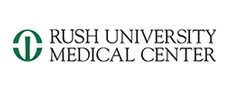Post Operative Care
After Care & Post-Operative Instructions
After surgery you will be given specific instructions. The following are very basic orders and you would need physician instruction to clarify dressing instructions, appointments and whether to take anti-inflammatory medication.
Medications
Take medication for pain as directed by the label on the prescription bottle. Pain pills should be taken with food as they can cause nausea. Drink and eat plenty of fluids and fruits to help avoid constipation. Plan ahead, as pain prescriptions are not refilled after hours or on weekends.
Do not drink alcohol, drive a vehicle, sign a legal document, nor the first 24 hours post-surgery due to the sedatives and/or anesthesia received during surgery.
Activity
Go directly home and rest after surgery. The following day, advance activity as tolerated unless otherwise specified by your surgeon. Gently cough and take deep breaths every few hours for three days following surgery.
Use ice to control swelling. Apply ice for 20 minutes each hour, making sure ice bag does not leak into dressing.
Loosen the ace wrap if any numbness or tingling continues after 24 hours post-surgery.
Do not remove dressing unless specifically instructed to do so by your surgeon. Keep it clean and dry. The original dressings need to remain in place at least the first 48 hours. Some bleeding is to be expected from the surgical incision, and the dressing may need to be reinforced. If necessary remove the ace wrap, place new dressing over the original dressing, and reapply the ace wrap.
Diet
Begin with clear liquids and eat a light diet after surgery. Avoid spicy, hot or gaseous foods (such as pizza and chili), as they may increase chances for nausea. Advance diet as tolerated. Drink a minimum of two liters daily (seven 10oz glasses of fluid).
Call your surgeon’s office if any of the following occur:
- Temperature by mouth over 101 degrees
- Pain not relieved after taking medication as directed
- Rash, itching or other adverse reaction after taking pain medication
- Continued nausea or vomiting
- Extreme swelling around operative area
- Inability to urinate
- Any other urgent concern
Make your follow-up appointment with your physician as instructed.
Opioid Management
After orthopaedic surgery, your doctors and nurses will make every effort to control your pain. While you should expect to feel some discomfort, there are several options available to your doctor to manage and relieve pain.
Many types of medicines are available to help control pain, including opioids, non-steroidal anti-inflammatory drugs (NSAIDs), and local anesthetics. Medications can help you feel more comfortable, allowing you to start moving sooner, get your strength back more quickly, and recover from surgery faster.
Because of concerns regarding opioid use, alternative approaches, such as medical hypnosis and acupuncture, are being used more often as surgeons and their patients increasingly choose these methods to supplement conventional medicine. A combined approach to pain management is often the best option because it allows the surgeon to tailor pain control methods to each individual patient.
Please access the link below for more information:
Source: Managing Pain with Medications


















